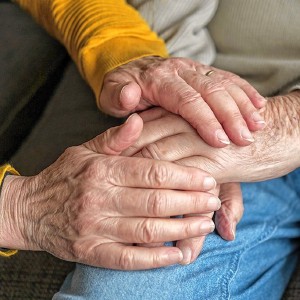Opinion: Closing the divide
| Published: 06-25-2023 8:00 AM |
John Buttrick writes from his Vermont Rocker in his Concord home: Minds Crossing. He can be reached at johndbuttrick@gmail.com.
I have recently learned about a concept that could go a long way toward healing the great divide in the country. The divide has been described in a number of ways: between “haves” and “have nots,” poor and rich, between college education and limited education, and between laborers and office workers.
Social convention determines that the meaning of life is evidenced by which side of the divide a person lives. This social convention describes a meaningful life as one of wealth, higher education, an office near the top of the building, success in a financial institution, or elected political office. The rest are perceived to lead meaningless lives, with a hand-to-mouth existence, rented homes, low credit scores, long work hours, and no means to change their lives for the better. They feel their labor contributes nothing to society. They experience very little self-esteem. They are left with resentment and are critical and mistrusting of those with wealth and prestige.
Michael J. Sandel has written in the Atlantic, “Any serious response to (these) working-class frustrations… must also put the dignity of work at the center of the political agenda. Thinking through the meaning of work would force Americans to confront moral and political questions that we otherwise evade: What counts as a contribution to the common good? What do we owe to one another as citizens?”
These two questions refocus the search for a way to close the divide between the wealthy and powerful and the poor and powerless. Rather than seeking access to personal worth based upon how much one accumulates, Edith Rasell in her book, “The Way of Abundance,” understands personal worth to be “the opportunity for everyone to contribute their labor to fulfill the needs of others, thereby gaining social recognition and esteem.” She identifies this opportunity as “contributive justice.”
Contributive justice ensures that everyone has an equal opportunity to make some kind of social contribution. Mark Banks, professor of Cultural Economy at the University of Glasgow, writes, “Contributive justice derives from the Aristotelian notion that what we do in life is as important as what we get in terms of our overall quality of life and well-being.”
Contributive justice emphasizes the importance of meaningful work being perceived as a gift to society. However, there is an assumption embedded in this concept. It is that a meaningful life and work, defined as contributions to other’s needs and wellbeing, is an equalizing motivator that will close the economic and social divide between people. It assumes that it is possible to discern the importance in the value of each person and their work, no matter whether they are laborers or corporate executives.
This change in the way people’s worth is measured, will not be the result of a pronouncement, resolution, or a new legal directive. It is a long process and assumes people are willing to change their motivation for work and social status toward serving each other. Jeremy Pitt outlines a process to accomplish this assumption in “Contributive Justice and Self-Actualizing Systems.” He writes, “there are alternative paths to self-fulfillment which can be more deeply satisfying than mere material accumulation and consumption.”
Article continues after...
Yesterday's Most Read Articles
The path is constructed with three interlocking components: civic education, civic participation, and civic dignity. Civic education is essential. It should be inclusive and diffusive, accessible to all, and emphasize the reasons for sharing the burdens incurred by collective self-governance — learn why it is important to help one another. Civic participation is active, purposeful, and appreciated participation in the life of a community — everyone is expected and welcomed to be an active part of the community. Civic dignity involves equal high standing of each person among a socially diverse body of citizens. It is created when people are deemed worthy as fully-fledged participants in processes of discourse and action — everyone is welcomed and included in the democratic society.
Imagine a society where the presence of every person is valued. Imagine that every job is a contribution to the well-being of the wider community. The present divide would close as each person receives material and social recognition for their contribution to the democratic society. No more need to scoff at higher education or at manual labor. All has value. Imagine each person willing and eager to contribute to the health and wellbeing of the stranger in need. Imagine believing that the loss of any one person is a loss to the community and meeting the needs of a person is a benefit to self and all others. Contributive justice is the companion of democracy. Democracy can be the vehicle of justice for all people.
]]>


 Opinion: New Hampshire, it’s time to acknowledge the stories of suffering
Opinion: New Hampshire, it’s time to acknowledge the stories of suffering Opinion: A digital equity plan for Granite Staters
Opinion: A digital equity plan for Granite Staters Opinion: Look to facts in Medical Aid in Dying
Opinion: Look to facts in Medical Aid in Dying Opinion: In the debate on Medical Aid in Dying, facts matter
Opinion: In the debate on Medical Aid in Dying, facts matter
